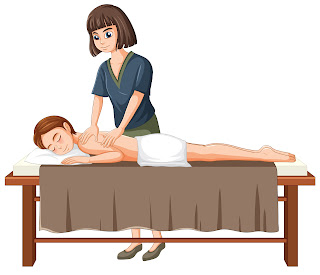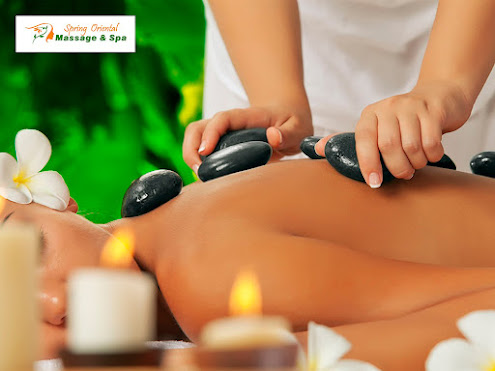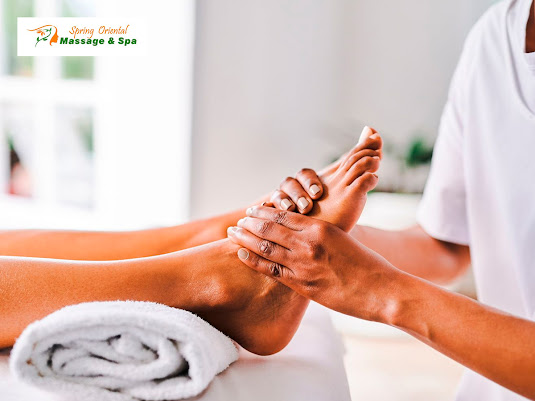Full Body Massage: Relaxing Your Body and Mind
Massage therapy has been used for centuries to
alleviate pain and promote relaxation. A full body massage is a popular option
for those who want to experience the benefits of massage therapy throughout
their entire body. This article will cover everything you need to know about
full body massage, including its benefits, different types of massage,
preparation, techniques, aftercare, safety, and precautions.
Benefits of Full Body Massage
Full body massage provides numerous benefits
for both your body and mind. Massage therapy can help reduce stress, anxiety,
and depression while also promoting relaxation and improving sleep quality. It
can also help relieve muscle tension, reduce inflammation, increase blood flow,
and improve overall flexibility and range of motion.
Different Types of Full Body Massage
There are several types of full body massage, including Swedish massage, deep
tissue massage, sports massage, Thai massage, shiatsu massage, and hot stone
massage. Each type of massage has unique benefits and techniques that are
tailored to specific needs.
Foot Massage: A foot massage is a therapeutic technique that involves manipulating
the soft tissues of the feet to relieve tension, improve circulation, and
promote relaxation. The massage therapist will typically use their hands,
fingers, and/or specialized tools to apply pressure and knead the muscles and
connective tissues of the feet.
Deep Tissue Massage: Deep tissue massage is a
massage technique that focuses on the deeper layers of muscle and connective
tissue. The massage therapist will use slow, deep strokes and intense pressure
to break up adhesions and release chronic muscle tension. This type of massage
is typically recommended for people with chronic pain or injury.
Facial Massage: Facial massage is a relaxing and rejuvenating
treatment that involves using gentle massage techniques on the face and neck.
The massage therapist may use their hands or specialized tools to stimulate
circulation, relieve tension, and promote lymphatic drainage. This type of
massage can help to reduce puffiness, improve skin tone and texture, and
promote a healthy glow.
Hot Stone Treatment: Hot stone massage is a
technique that involves using heated stones to massage the body. The stones are
typically made of basalt, a type of volcanic rock that retains heat well. The
massage therapist will place the stones on specific points on the body and use
them to massage the muscles. The heat from the stones helps to relax the
muscles and increase circulation.
Stand-up Shower: A stand-up shower is a type of shower that is
designed for people who prefer to stand while they shower. It typically
features a showerhead that is mounted on the wall and a drain in the floor.
Stand-up showers are often used in small bathrooms or in bathrooms where space
is limited.
Hot Towels: Hot towels are a simple and effective way to
relax the muscles and relieve tension. The massage therapist will typically
apply warm, moist towels to the body before or after a massage to help soothe
sore muscles and promote relaxation. Hot towels can also be used to cleanse the
skin and prepare it for other treatments, such as facials or deep tissue
massage.
Preparation for Full Body
Massage
Before your full body massage, it's important
to know what to expect and how to prepare. First, choose a qualified and
experienced massage therapist who can tailor the massage to your specific
needs. You should also set the right atmosphere by choosing a comfortable and
quiet room with soft lighting and relaxing music. Wear comfortable clothing
that you can easily remove to allow the therapist access to all areas of your
body.
Full Body Massage Techniques
During a full body massage, the therapist will
use a variety of techniques based on your preferences and needs. These may
include long strokes, kneading, deep circular movements, vibration, tapping,
and stretching.
After the Massage
After your full body massage, it's important to
drink plenty of water to flush out toxins and stay hydrated. Rest for a while
to allow your body to recover, and gently stretch to help prevent soreness and
maintain flexibility.
Safety and Precautions
While
full body massage is generally safe for most people, there are some precautions
you should take. If you have any allergies or sensitivities, be sure to inform
your massage therapist beforehand. If you have any injuries or medical
conditions, it's important to check with your doctor before getting a massage.
Additionally, certain conditions such as fever, infectious diseases, or open
wounds may require you to postpone your massage until you are feeling better.
While full body massage is generally safe for
most people, there are some precautions you should take. If you have any
allergies or sensitivities, be sure to inform your massage therapist
beforehand. If you have any injuries or medical conditions, it's important to
check with your doctor before getting a massage. Additionally, certain
conditions such as fever, infectious diseases, or open wounds may require you
to postpone your massage until you are feeling better.
Conclusion
Full body massage is a great way to relax your
body and mind while also reaping numerous health benefits. Whether you choose
Swedish, deep tissue, sports, Thai, shiatsu, or hot stone massage, you are sure
to feel rejuvenated and refreshed after your session. So why not book your next
appointment today and experience the amazing benefits of full body massage for
yourself?
FAQs
1)
How often should I get a full
body massage?
·
It depends on your individual
needs and preferences, but getting a massage once a month is a good starting
point.
2)
What should I wear for a full
body massage?
·
Wear comfortable clothing that
you can easily remove to allow the therapist access to all areas of your body.
3)
Is full body massage safe
during pregnancy?
·
It can be safe during
pregnancy, but it's important to check with your doctor and find a massage
therapist who is trained and experienced in prenatal massage.
4)
Can full body massage help
with chronic pain?
·
Yes, deep tissue massage and
other types of massage can help relieve chronic pain by targeting deep layers
of muscle and connective tissue.
5)
How can I find a qualified
massage therapist?
·
Ask for recommendations from
friends or family, or look for a licensed and certified massage therapist in
your area.
For more information Visit
us:- https://www.springorientalmassagespa.com/
Book now : - 971-331-0161

.jpg)


Comments
Post a Comment